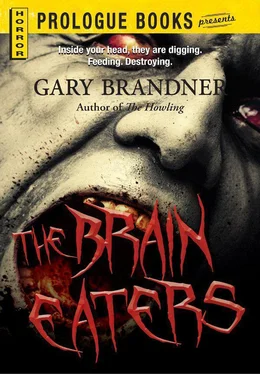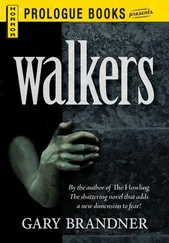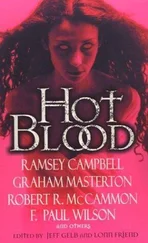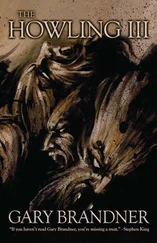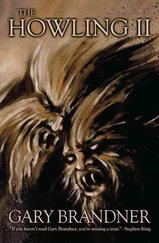Corey reread the story, making notes as he went along. Coincidence, probably. Sure it was. But maybe … just maybe …
He took out a fresh sheet of copy paper and drew a vertical line down the center. He headed one column Stransky , the other Williamson . Down the left margin he wrote Age, Location, Job, Family . Using the New York story, he filled in the information on DuBois Williamson, matching it against what he knew of Hank Stransky. Both were middle-aged: forty-five and fifty-four. Both lived in a metropolitan area: Milwaukee, Brooklyn. Both were steady blue-collar types who had been on their jobs a long time. Both were married — Stransky with two sons; Williamson, one serving in the navy.
Then he ran out of similarities and sat for a minute tapping the pen against his teeth. Finally, at the bottom of the page, he wrote FIND LINK in caps and underlined it several times.
Oscar Yates, a onetime hotshot reporter who drank himself off the Chicago Sun-Times , sauntered over. He carried a torn-off sheet of wire copy.
“Hey, Macklin, you the freak-out editor this week?”
Corey looked up without bothering to answer.
“You might be interested in this.” Yates let the copy sheet float down on top of the papers on Corey’s desk. The AP story read:
The body of Andrea Olson Keith, 20, was returned to the Wisconsin home of her grandparents after her bizarre death in Seattle Friday. Authorities there are still speculating over what caused the bride of one day to go berserk in a restaurant atop Seattle’s famed Space Needle. Four victims of the woman’s knife attack were recovering. Her husband, Justin Keith, 22, was pronounced dead at the scene from stab wounds to the throat.
Corey dug through the stack of dailies for the Seattle Post-Intelligencer . Then he took out a fresh sheet of paper. On this one he made three vertical columns.
Dr. Frederich Kitzmiller shifted his weight from one buttock to the other in the deep leather swivel chair behind the carved mahogany desk. He tried unsuccessfully to find a comfortable position. The soft, cushiony seat was simply not made for his narrow rear end. The rest of the furnishings were equally unsuitable. The framed woman and two children smiling at him in Kodachrome were strangers to Kitzmiller, a bachelor. The prints on the wall were warm, summery landscapes. The carpet was a rich, figured burgundy.
To his left a window overlooked the rolling green mall of the Biotron complex. On the wall to his right was an antique hat rack and mirror with a polished oak frame. Kitzmiller detested the room. He spent as little time there as he could manage.
It was Dr. Kitzmiller’s “friendly” office. The one where he greeted visitors to the Biotron plant when he could not get out of it. And where he held the rare briefings for the media. Kitzmiller much preferred the bare, windowless room that was part of the biochem building. Cold and austere, no distractions. He was comfortable there.
For that day’s purpose, however, the “friendly” office was more suitable. The theory, with which Kitzmiller was not completely in agreement, was that the interviewee should be placed as much at his ease as possible. It was foolish, he thought, to be so ginger in the treatment of an employee, especially considering the circumstances. But the decision, alas, was not his to make.
Kitzmiller swiveled the chair to look into the oval mirror. His thin, bony face looked back at him, the ice-blue eyes bright in their deep sockets.
“I fail to see why someone else cannot handle this sort of thing,” he said to the mirror. “I am a researcher, not a personnel man.”
He thumbed a switch on the desk-top intercom, and a filtered voice spoke to him through the speaker. “Your name is the only one that carries enough respect, doctor. This Ed Gault is not so likely to lie to you.”
“Perhaps. I am still not convinced that we are following the right path.”
“It’s the best possibility we have. The pilots were no help.”
Kitzmiller’s mouth tightened. “Speaking of the pilots, there is a difficulty.”
“What’s the problem? The wife was relocated, wasn’t she?”
“The problem is related to the other one, Anderson. It seems he was seeing one of my people socially. Since his, ah, disappearance, she has been asking questions.”
“She works for you?”
“She is in my department, yes. Quite a talented biochemist. Her name is Dena Falkner.”
“Can’t you transfer her? Fire her, even?”
“Not without raising still more questions.”
“Stall her, then.”
“That is what I have been doing. However, this woman is no fool, and her inquiries persist.”
“If it gets too sticky, my people will take care of her.”
Dr. Kitzmiller started to say something but changed his mind. He drummed manicured fingers on the polished desk top. His icy gaze shifted away from the mirror, toward the office door. “Do you think Mr. Gault has waited out there long enough?”
“Give him a few more minutes,” said the filtered voice.
“Let him worry a little about what’s going to happen to him.”
Kitzmiller looked back into the mirror. “It is very disconcerting, talking to you without seeing your face.”
“You know what I look like.”
“That is not the point.”
“I know, I know. For our purposes it’s important that Gault thinks he’s alone with you. It gives me a chance to watch his reactions without distracting him from the interview.”
“Do you really believe he knows more than he has already told us?”
“That’s what I want to find out.”
“Have you followed up on the Russians?”
“You mean the agricultural mission that came through here?”
Kitzmiller made a noise in his throat. “Agriculture, bah! One of them was Anton Kuryakin. Do you know who he is?”
“Doctor, I don’t think we have to — ”
“He is the Soviet Union’s foremost expert on biochemical warfare. And why was he here masquerading as a simple farmer? To spy on us and learn how far we have advanced; that is why.”
“We know about Kuryakin,” said the voice on the intercom. “The State Department is on top of the situation.”
“The State Department.” Kitzmiller’s voice dripped contempt.
“Yes, I know. I feel the same way about them. But we can’t afford to step on their toes. The Russians’ toes, either, for that matter.”
“Of course,” said Kitzmiller. “The Russians are our friends now, are they not?”
“They are,” said the voice from the speaker. “That is the official posture of the administration.”
“This week,” said Kitzmiller.
“Doctor, are you maybe letting your personal feelings influence your judgment here?”
“What do you know of my personal feelings?”
“You’ve been thoroughly backgrounded, naturally.”
“Naturally.”
“Your experiences in Germany were not, shall we say, pleasant.”
“Let us say that.”
• • •
Berlin. 1945. The Russians came down his street in the morning. Larger than life, their tunics unbuttoned, rifles slung carelessly over their shoulders. They were loud, swaggering, flushed with victory and drink.
Frederich was sixteen. He had escaped conscription into the ragtag end of the German army only because of his father’s standing with the Nazi party. When the Russians came in, his father was already dead, the back of his head blown out by a bullet from his own pistol.
His mother was to live another year under the Russians after Frederich had escaped to the United States to be raised by an aunt and uncle. But of all the horrors he remembered of that time, the one that caused Frederich the continuing nightmares was the last time he saw his brother.
Читать дальше
